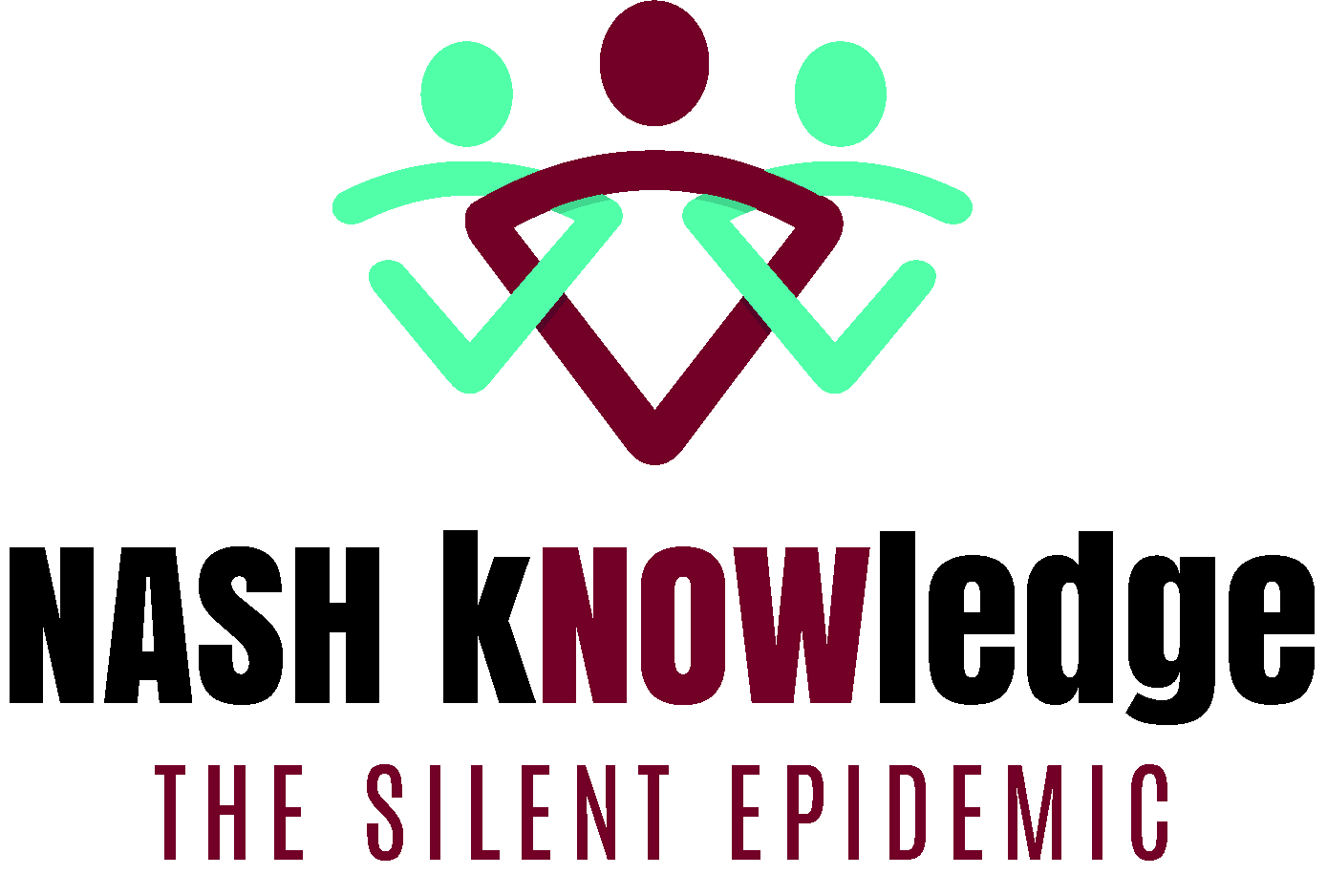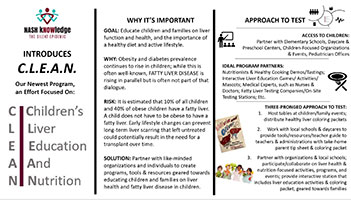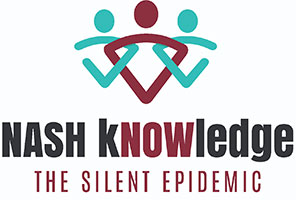
Local Non-Profit NASH kNOWledge Participates in Global Liver Institute’s International NASH Day, Joining 80 Partner Organizations in 25 Countries
FOR IMMEDIATE RELEASE
Media Contact:
Gina Madison, Executive Director
NASH kNOWledge
973-557-3499
nashknowledge@gmail.com
NASH kNOWledge
973-557-3499
nashknowledge@gmail.com


Image 1: NASH kNOWledge created a new program – CLEAN (Children Liver Education And Nutrition) – to help raise awareness of liver disease in children and educate families about the importance of a healthy lifestyle.;
Image 2: NASH kNOWledge was established to increase public awareness of nonalcoholic fatty liver disease (NAFLD) and nonalcoholic steatohepatitis (NASH). [Click images for larger view]
LOCAL NON-PROFIT NASH KNOWLEDGE PARTICIPATES IN GLOBAL LIVER INSTITUTE’S INTERNATIONAL NASH DAY, JOINING 80 PARTNER ORGANIZATIONS IN 25 COUNTRIES
PITTSBURGH, PA (PittsburghNewsWire.com), June 23, 2020 — For the first time, International NASH Day (IND), a global awareness and action initiative of the Global Liver Institute (GLI) is endorsed by the major hepatology organizations in both the United States and Europe, the American Association for the Study of Liver Diseases (AASLD) and the European Association for the Study of Liver Diseases (EASL). Held annually on June 12 since 2018, IND 2020 convened more than 80 partners in 25 countries to draw attention to the most pressing topics in the fight against nonalcoholic steatohepatitis (NASH) and nonalcoholic fatty liver disease (NAFLD).
NAFLD affects more than 115 million people and prevalence is expected to double by 2030. NAFLD occurs when the liver contains excess fat. NASH, the advanced form of NAFLD, occurs when fat continues to accumulate in liver cells leading to inflammation and injury to the cells. Most patients have no symptoms and are often unaware of their liver condition until the disease progresses. NASH is the second leading cause of liver transplant in the US and is predicted to become the leading cause. Early screening and lifestyle changes can have an impact on NASH progression and potentially reverse the disease in early stages.
NASH kNOWledge Executive Director Gina Villiotti Madison joined medical experts from the United Kingdom, Canada and Philadelphia, PA for IND 2020 to discuss the growth of NAFLD and NASH in children. NAFLD is the leading cause of chronic liver disease in children. Researchers estimate that upwards of ten percent of American children between 2 and 18 have fatty liver.
“Tackling the childhood aspect of this disease is a current priority for us at NASH kNOWledge; we created a new program – CLEAN (Children Liver Education And Nutrition) – to help raise awareness of liver disease in children and educate families about the importance of a healthy lifestyle by partnering with schools, pediatricians and child-focused organizations in an effort to drive change and improve the health of our future generation,” stated Madison. “As a parent myself I recognize the concern around pediatric NASH in parallel with the growth of childhood obesity. Elevating the importance of children’s liver health is a great place to raise more awareness about fatty liver and hopefully create urgency about this disease with families.”
Globally, 41 million children under the age of five have been found to be overweight or obese. More than 340 million children and adolescents ages 5-18 are overweight or obese. The growing prevalence of obesity and diabetes in children continues to get attention, yet NAFLD and NASH are missing from this dialogue. Lifestyle is a family issue, not just a child issue. While genetics plays a role, a poor diet and lack of physical activity are key contributors to the increased prevalence of fatty liver in children and adults.
“It begins with education, helping children and families understand the consequences of a diet filled with high levels of sugar and processed food, particularly the chronic liver toxicity of the fructose component,” said Dr. Karen Jerome-Zapadka MD, a specialist in adult GI/Liver disease and obesity medicine. “As a physician entrenched within the community in Beaver County, I see patients daily who have developed NASH and end-stage liver disease. Focusing our education on health care providers as well as patients is a critical step to appropriately screen at-risk children and adults, as outlined in recently published guidelines.”
“We need to think of nutrition as medicine. Though weight loss and lifestyle changes are the cornerstone of treatment, studies have shown that even without reducing calories or weight loss, simply reducing the amount of fructose can rapidly improve liver health in children,” continued Dr. Jerome-Zapadka. “It is more important than ever that we decrease our sugar and processed food intake and focus on eating real food.”
Recent guidelines recommend no more than 24 grams (6 teaspoons) of added sugar per day for children. It is common for children to regularly consume soda, fruit juice and sports drinks, as well as processed foods with added sugar, leading many children to routinely consume 4-5 times the recommended amount.
The amount of fat in the liver can be reduced through nutrition, physical activity, maintaining a healthy weight, and adequate sleep, all known strategies to help prevent and treat pediatric NAFLD and NASH.
Dr. Jerome-Zapadka and NASH kNOWledge are focused on developing programs and activities to help educate families about liver health and the importance of healthy nutrition. This includes plans to work with local schools, pediatrician offices and child-focused organizations. A current priority of NASH kNOWledge’s CLEAN program is to develop an interactive and engaging online and mobile experience to help educate children and families about liver disease and smart diet choices in a fun and informative way.
Millions of people worldwide are at risk for the potentially fatal liver diseases of NAFLD and its more severe form, NASH. NASH is a major risk factor for many other health conditions. People living with NASH usually have one or more metabolic disorders (such as obesity, type 2 diabetes, cardiovascular disease and various cancers), often the cause of mortality rather than the liver disease itself. Thirty-seven percent of people with obesity have NASH, similarly 37% of people with type 2 diabetes also have NASH. Under identified and untreated, NASH may result in serious outcomes including cirrhosis, liver cancer, liver transplant, or death. Now more than ever, the COVID-19 pandemic adds additional risks for those with NASH.
“International NASH Day unites, and inspires a collective call to action, which is never more urgent than in 2020 when we are set to yield the harvest of years of diligence and investment in drug and diagnostic technology development and momentum in awareness and policy,” says Donna R. Cryer, JD, Founder and CEO of the Global Liver Institute. “We must make the most of this moment together.”
###
About NASH kNOWledge
NASH kNOWledge is a 501(c)(3) tax-exempt not-for-profit organization, headquartered in Pittsburgh, PA, United States. NASH kNOWledge was established to increase public awareness of nonalcoholic fatty liver disease (NAFLD) and nonalcoholic steatohepatitis (NASH). The target audience for NASH kNOWledge is the general public and those newly diagnosed with NAFLD or NASH.
NASH kNOWledge is a 501(c)(3) tax-exempt not-for-profit organization, headquartered in Pittsburgh, PA, United States. NASH kNOWledge was established to increase public awareness of nonalcoholic fatty liver disease (NAFLD) and nonalcoholic steatohepatitis (NASH). The target audience for NASH kNOWledge is the general public and those newly diagnosed with NAFLD or NASH.
For more information on NASH kNOWledge, visit www.nash-now.org. Follow us on Facebook at www.facebook.com/NASHkNOWledge.
About Dr. Karen Jerome-Zapadka
Dr. Jerome-Zapadka currently practices at Valley Gastroenterology Associates and is affiliated with Heritage Valley Health System. Working at the patient level, she sees fatty liver disease in patients on a daily basis and has been at the forefront of developing programs and partnerships to raise more awareness and provide better education to patients and healthcare providers about fatty liver disease. She has implemented a comprehensive obesity program in her practice, has developed a multi-disciplinary nutrition committee through Heritage Valley and took a lead role in the Pediatric Symposium, one of the first events to raise awareness of pediatric liver disease. Dr. Jerome-Zapadka is also known for bringing the FibroScan technology to Beaver County to improve liver disease evaluation. She is a medical advisor for NASH kNOWledge.
Dr. Jerome-Zapadka currently practices at Valley Gastroenterology Associates and is affiliated with Heritage Valley Health System. Working at the patient level, she sees fatty liver disease in patients on a daily basis and has been at the forefront of developing programs and partnerships to raise more awareness and provide better education to patients and healthcare providers about fatty liver disease. She has implemented a comprehensive obesity program in her practice, has developed a multi-disciplinary nutrition committee through Heritage Valley and took a lead role in the Pediatric Symposium, one of the first events to raise awareness of pediatric liver disease. Dr. Jerome-Zapadka is also known for bringing the FibroScan technology to Beaver County to improve liver disease evaluation. She is a medical advisor for NASH kNOWledge.
About GLI
The Global Liver Institute is a 501(c)(3) tax-exempt not-for-profit organization, headquartered in Washington, D.C., United States. GLI, the only liver health non-for-profit to operate in the US and Europe, is advocating for liver health to take its place on the global public health agenda commensurate with its prevalence and impact. GLI’s mission is to improve the impact of the liver community by promoting innovation and collaboration and scaling optimal approaches to eradicating liver diseases.
The Global Liver Institute is a 501(c)(3) tax-exempt not-for-profit organization, headquartered in Washington, D.C., United States. GLI, the only liver health non-for-profit to operate in the US and Europe, is advocating for liver health to take its place on the global public health agenda commensurate with its prevalence and impact. GLI’s mission is to improve the impact of the liver community by promoting innovation and collaboration and scaling optimal approaches to eradicating liver diseases.
Get Involved
For additional information on International NASH Day, visit www.international-nash-day.com
For additional information on International NASH Day, visit www.international-nash-day.com
International NASH Day and its logo is a registered trademark of Global Liver Institute.


